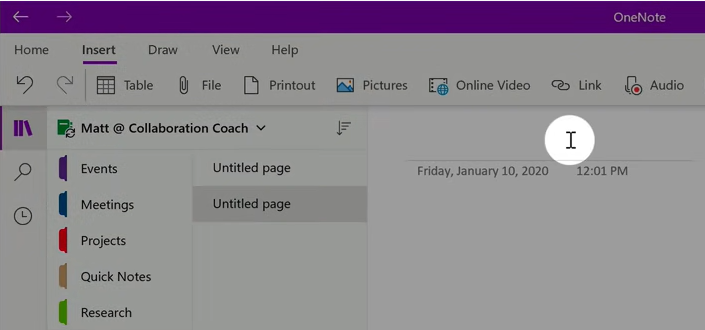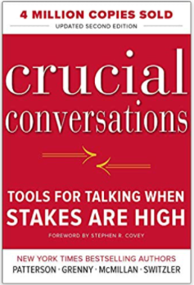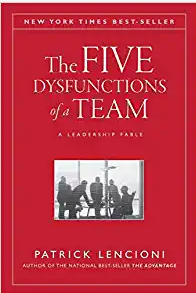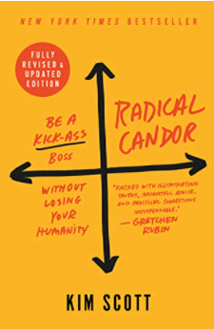Managing Employees: On-Site or Remote
Why does employee management matter?
Every insurance agency has a plateau at which you can’t grow further without hiring an employee. You need someone’s help to service all of your customers, so you can keep bringing in new accounts.
Many agents are great at selling, but don’t really know how to manage and motivate their employees. Your agency’s growth depends a lot on your team, so whether you already have employees or are thinking about hiring someone, this topic could make a big difference for you.
A complete lack of management leaves employees confused about what they should do and how their performance is measured. Micromanagement pushes people away too. People quit jobs with bad managers, even if they like the work that they are doing.
The good news is that you can do some specific things to set expectations with your employees, streamline their training with standardized operating procedures (SOP’s), and regularly review their performance without micromanaging them.
Read on to learn how you can effectively manage your team whether they work with you on-site, or remotely.
Watch this video to learn how to manage employees better:
In a recent webinar, Firefly’s HR Manager, Taylor Maguire, shared what she has learned about these topics. Watch it all, or use the chapter markings in the video to jump to the sections that you’re most interested in:
Here’s what’s covered in the video:
- 00:00 : Introduction and disclaimer
- 01:20 : Remote vs in-person – similarities and differences
- 03:30 : SOPS will help you train employees
- 05:13 : ✒️ What is OneNote, and how can it help you?
- 07:47 : How to create an SOP
- 10:42 : Mgmt system reports help you see employee activity
- 14:38 : You need employee management principles
- 17:02 : Performance management – consistency
- 19:15 : 🔑 Tip: Focus time for employees (and you!)
- 23:24 : An example performance management schedule
- 26:38 : 🔑 Tip: regular 1-1’s for clear communication
- 29:52 : Bi-yearly performance appraisals
- 32:39 : Example insurance agency employee performance schedule
- 33:16 : 📘 Favorite books about employee management
- 35:03 : Q: Do you do personality tests?
- 36:33 : Q: How to promote high morale?
- 38:29 : Q: How to remotely encourage salespeople?
- 41:29 : Q: How do you handle pay questions?
- 43:26 : Q: Can you combine in-office and remote workers?
- 45:26 : Q: Are smaller agencies choosing to work remotely?
- 46:36 : Q: What about virtual assistants? (VA’s)
- 48:01 : Q: Should you hire or work with family members?
Remote vs in-person employee management
According to Taylor, here’s what’s the same, no matter where your employees work:
- Collaboration can still occur in 1-1 and group settings
- Communication is not interrupted
- Training can still be done in real time
- In-the-moment decisions can still be made (you can pivot with ease)
Here’s what’s different when you manage remote workers:
- Training is done through screensharing and presentations
- Communication is virtual-face to face and text messaging
- Remote management can actually create efficiency and productivity
You’ll also get links to websites and software that you can use in your agency to create your brand image.
Standard operating procedures (SOPs):
Standard operating procedures are your written-out steps for completing important tasks the right way.
They help your agency in several ways. For starters, they let you summarize what you have learned as an agency owner so other people can follow your pattern.
They also simplify training for both you, and your employees. You don’t have to try to describe how a job should be done. Your employee doesn’t have to wonder what you want them to do or just guess at how they should do things.
Instead, you share your process. They follow it. Your agency runs more smoothly as a result.
Why do clear management principles matter?
Before you hire your first employee, you should write down what your management principles will be. That way, you can share them with your potential hires, which helps them decide whether they are a good fit for your insurance agency position.
You should also review your management principles with all new hires as part of your onboarding process. This helps you and your team member to have clear expectations of how you will be working together.
Your principles must be your own. Copying someone else’s will doesn’t work because you won’t be true to them in the moments when managing is difficult. With that caveat, here are a few (not all) of our management principles at Firefly:
- Documenting company processes, decisions, and your work is extremely important.
- As managers, listen first, talk second.
- Being clear is kind. (True for both giving directions on a task, or when giving corrective counsel.)
- Set the expectation that “no” is the right answer in certain circumstances. (This is related to the discussion about scheduled “focus time” as mentioned in the video above.)
- We encourage team members to share their ideas for improvement.
- We want to know our employees goals, aspirations & interests.
Productive Performance Management
To most people, “performance reviews” conjure up unpleasant experiences of a once-a-year checklist evaluation, some awkward discussions, and the relief of just getting it over with. But it can be better than that.
What works for Firefly is regularly scheduled communication, focused around the needs of the employee and working toward goals that they have set with you.
Weekly 1-1 meetings work best as the foundation, even if they are only 15 minutes long. Your employee will appreciate knowing that you will listen to their concerns and ideas. You will also have regular opportunities to discuss small issues before they become big ones.
Together, you and your employee establish 2-4 goals for them to work on over a six-month period. You discuss the status of their progress at 1-1’s, and at more formal check-ins every two months.
There’s a different feeling between this type of system and the annual grit-your-teeth and plow through it approach. The video above provides much more detail. Please watch it to learn more.
Microsoft OneNote: A place to record your SOPs and HR notes
You can use whatever tools or methods you choose, for your SOPs and notes about hiring and managing your employees. There are lots of ways you can do it. At Firefly, we are completely paperless, and we love using Microsoft OneNote for this kind of thing.
Not only is it awesome, but it is free for you to use!
OneNote is much better than Word because it allows you to organize your information as if it were in a digital notebook with tabs, and multiple pages within each tab. (See screen shot here.)

Because you can save the information in the cloud, you can also share a OneNote notebook with coworkers. This means that if you or they make changes to an SOP, everyone will see those changes within moments. It’s awesome!
We don’t have the time or expertise to teach you everything about OneNote, but here are some resources you can use to learn about it and get started:
- Download OneNote from Microsoft (It is usually already installed on Windows computers. You can also get it for your phone and other computers.)
- OneNote training video series, from Microsoft
A few of Firefly Agency’s favorite books about employee management:
There are tons of books about employee management. These are some of our favorites, here at Firefly. If you have one that you love, please let us know!



Many thanks to Taylor Maguire, who contributed content for this article.